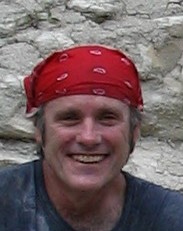 These are rich, but unsettling times for paleontologists.
These are rich, but unsettling times for paleontologists.
From a societal and scientific perspective, paleontology has never been more vital than at present. New fossil finds continue to capture the imaginations of scientists and broad segments of society alike, adding rich dimensions nearly every week to our understanding of life’s history. Paleontologists also contribute robustly to contemporary discussions about matters as far flung as the possible existence of life elsewhere in the solar system and beyond, and the assessment of human-caused alterations to environments and ecosystems.
Yet there is a sense that paleontology is also vulnerable at present, be it at the hands of school boards who seek to undermine the teaching of evolution in public schools, or politicians looking to micromanage federal research funding to suit their own beliefs and needs, or federal offices enacting new restrictions on the collection of fossils on public lands.
The metaphorical firewall between “amateur” and “professional” paleontologists has long struck many people as artificial. For example, members of the principal avocational group in my region, the Cincinnati Dry Dredgers, have demonstrated copiously over the years that there is nothing amateurish about their paleontological pursuits! The Dry Dredgers have long partnered with students and faculty at the University of Cincinnati in scientific studies, graciously sharing their encyclopedic knowledge of the classic fossils and strata in the Cincinnati region. They have co-authored numerous scientific publications with their colleagues at the University, have financially underwritten the research of generations of graduate students at Cincinnati and elsewhere, and participate extensively in education-and-public outreach activities.
Against this backdrop, The Paleontological Society is investigating the possibility of actively recruiting avocational paleontologists as members. To be sure, there is nothing at present to preclude anyone from becoming a member, but the Society has never actively reached out to avocational paleontologists. As President-Elect of the Society, I am confident that the vast majority of our current members would be quite pleased to be joined by their avocational colleagues. Furthermore, I believe that one Society representing the interests of all paleontologists would be more effective in helping to secure the future of the science.
As we continue to pursue this possibility, it would be helpful to get input from avocational paleontologists on a few matters:
As an avocational paleontologist, are you interested in joining The Paleontological Society?
The Paleontological Society publishes two journals, the Journal of Paleontology and Paleobiology, regularly holds national and regional meetings, is primary host for the quadrennial North American Paleontological Convention (NAPC), and sponsors symposia at international meetings. Members of the Society receive free access to the electronic versions of both journals and discounted pricing for attendance at Society-sponsored meetings, plus additional benefits. If given the option, would you choose to become a full member (the current membership rate is $55/year), or would you prefer a reduced rate and a special category of membership that might come with a different set of benefits?
The Society is actively thinking about special programming and initiatives focused on the interests of avocational paleontologists. Beyond the opportunity to participate in the Society’s meetings, symposia, workshops, and other regular activities, can you suggest additional initiatives that the Society should pursue in behalf of avocational paleontologists?
Please feel free to email your responses directly to me at: [email protected]. Many thanks!
Learn more about the Paleontological Society here.

Arnold I. Miller is Professor of Geology and Senior Associate Dean of the McMicken College of Arts & Sciences at the University of Cincinnati, and President-Elect of The Paleontological Society.